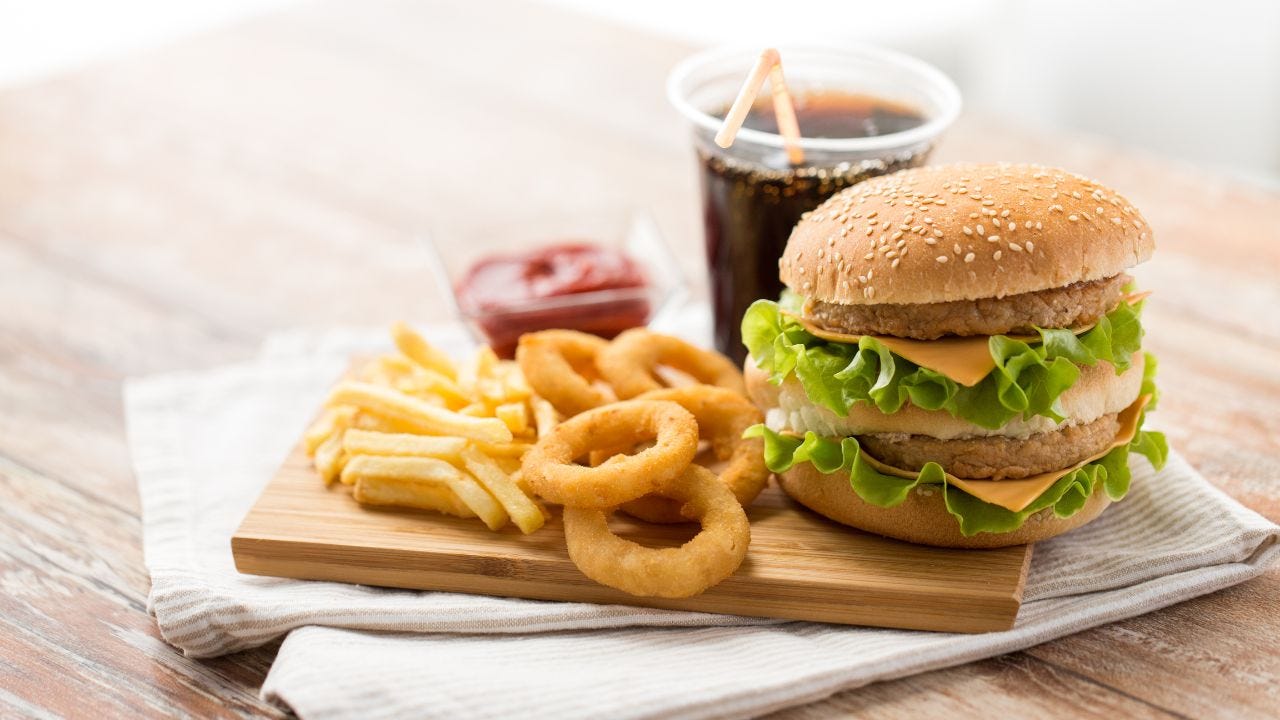Did you know that what you eat can impact your digestion and overall health?
We’ll explore foods that can help improve gut health through dietary changes such as what foods to eat in moderation and which foods to reach for more often!
What Foods Cause Bad Gut Health & Diarrhoea

Understanding The Link Between Diet & Gut Health
What Foods Can Cause Digestive Upsets?
Certain foods can trigger digestive upsets such as diarrhoea for some people, especially those with specific food sensitivities or intolerances.
Common culprits can include dairy products, particularly for those who are lactose intolerant, as well as certain high-fat and fried foods, which can be difficult for the body to digest.
Artificial sweeteners like sucralose and sugar alcohols such as sorbitol and mannitol, which are found in some sugar-free products, may also cause digestive upsets in some people.
Spicy foods, caffeinated beverages, and alcohol can irritate digestion, leading to irregular bowel movements and discomfort.
Foods That Are Bad for Gut Health
Beyond diarrhoea, certain foods can impact overall gut health. Processed foods, high in refined sugars and unhealthy fats, can feed harmful bacteria in the gut, disrupting the balance of the gut microbiome.
Foods that are low in fibre, such as processed snacks made from highly refined grains and cereals, lack the essential nutrients that promote the growth of beneficial bacteria.
How Bad Gut Health Foods Affect Your Gut Microbiome
When unhealthy foods disrupt the balance between beneficial and harmful bacteria in the gut microbiome, it can impact digestive and, immune health, and even impact bowel regularity or lead to gassiness.
Foods high in sugar and processed ingredients can encourage the growth of less desirable gut bacteria, while a lack of fibre can starve the beneficial bacteria that thrive on plant-based nutrients.
Over time, this imbalance can impact gut health, making choosing foods that support a healthy microbiome essential.
Supporting Gut Health Through Diet
Eating for Gut Health
Prioritise achieving a balanced diet rich in whole foods, staying hydrated, maintaining a healthy sleep hygiene and participating in daily movement.
Fibre helps regulate bowel movements, feeds beneficial gut bacteria, and can improve overall digestion. Foods with high fibre include nuts, seeds, lentils, beans, vegetables and more!
Fibre supplements, such as psyllium husk or inulin, are particularly beneficial for those struggling to get enough fibre from their diet.
Reach for foods with probiotic benefits to support your gut health. Foods to reach for include fermented foods such as kimchi, sauerkraut, miso, tempeh, kefir and yoghurt.
Prebiotics, which act as food for good bacteria, can also be very helpful for maintaining a healthy gut microbiome. You can find prebiotics in a number of foods such as bananas, garlic, onions, oats, asparagus, apples and plenty more! These foods can, encourage the growth of beneficial bacteria and can help contribute to better gut balance.
Key Takeaways for A Healthy Gut
The foods we eat have a direct impact on our gut health, and certain choices can contribute to digestive challenges, with the potential for some people to experience diarrhoea.
As discussed, common culprits include processed foods high in sugar and fat, spicy dishes, certain artificial sweeteners, and dairy products for those with lactose intolerance. These foods can trigger digestive discomfort and disrupt the gut, leading to poor gut health over time.
Understanding which foods affect your digestive system is important to reduce these issues and maintain a healthy gut.
Some foods have a negative impact on gut health and can disturb the delicate balance of the gut microbiome, the ecosystem of bacteria and microorganisms that regulate digestion and overall wellbeing. When the balance of good and bad bacteria is thrown off, it’s likely our digestion doesn’t feel its best.
Choosing foods that support digestion, avoiding triggers that cause diarrhoea or discomfort, and incorporating gut-friendly food and supplements into your routine can go a long way in maintaining digestive health. By making these changes, you can promote a strong, healthy gut.

